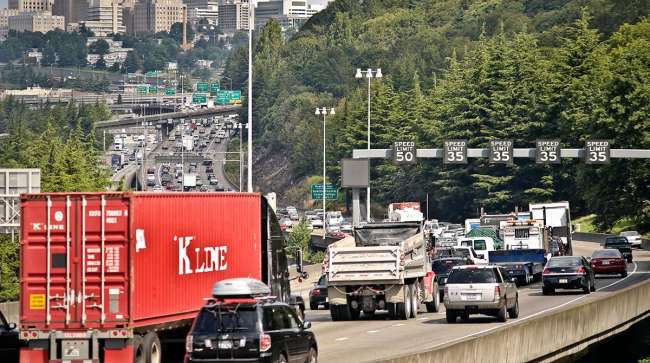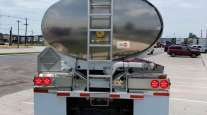Senior Reporter
FMCSA Seeks Approval to Study Driver Commuting Times

The Federal Motor Carrier Safety Administration is seeking approval from the White House Office of Management and Budget to study the safety effects of excessive motor carrier operator work commutes — primarily those exceeding 150 minutes.
The 2015 FAST Act mandates that the agency submit a report of findings to Congress, according to a Nov. 27 announcement in the Federal Register seeking public comment.
If granted approval by OMB, the agency plans to gather information on the prevalence of excessive commuting in the commercial motor vehicle industry, including the number and percentage of drivers who commute, the distances traveled, time zones crossed, time spent commuting, methods of transportation used, research on the impact of excessive commuting on safety and CMV driver fatigue, the commuting practices of CMV drivers and policies of motor carriers.
FMCSA said it wants to provide a random sample of 12,000 drivers via an email-web survey based on recent Motor Carrier Management Information System data.
“In the past two decades, as the number of workers has increased and the distance to affordable housing has also increased in most metropolitan areas, commuting times have increased in the United States,” the announcement said. “According to the 2015 Urban Mobility Scorecard, travel delays due to traffic congestion caused drivers to waste more than 3 billion gallons of fuel and kept travelers stuck in their cars for nearly 7 billion extra hours.”
FMCSA is asking permission to send out a survey that would take drivers about 20 minutes to complete. The agency also is seeking comments on the information collection idea for 60 days.
60-Day Notice of Proposed Information Collection: Driver Commuting Practices Survey by Transport Topics on Scribd
Long commuting times can reduce a driver’s available off-duty time for sleep and personal activities, the announcement said.
“This can lead to excessive fatigue while on duty, creating safety concerns for both the [commercial motor vehicle] driver and other drivers on the roads,” FMCSA said.
It also can adversely impact driver health, according to a recent study of 4,297 adults from 12 metropolitan Texas counties. The study found that drivers who have long commuting times were more likely to have poor cardiovascular health and be less physically fit.
“This study showed that people who commute long distances to work weigh more, are less physically active, and have higher blood pressure,” the agency said.
FMCSA said its initial expectation is that 4.17%, or 500 of the 12,000, will complete the survey.




